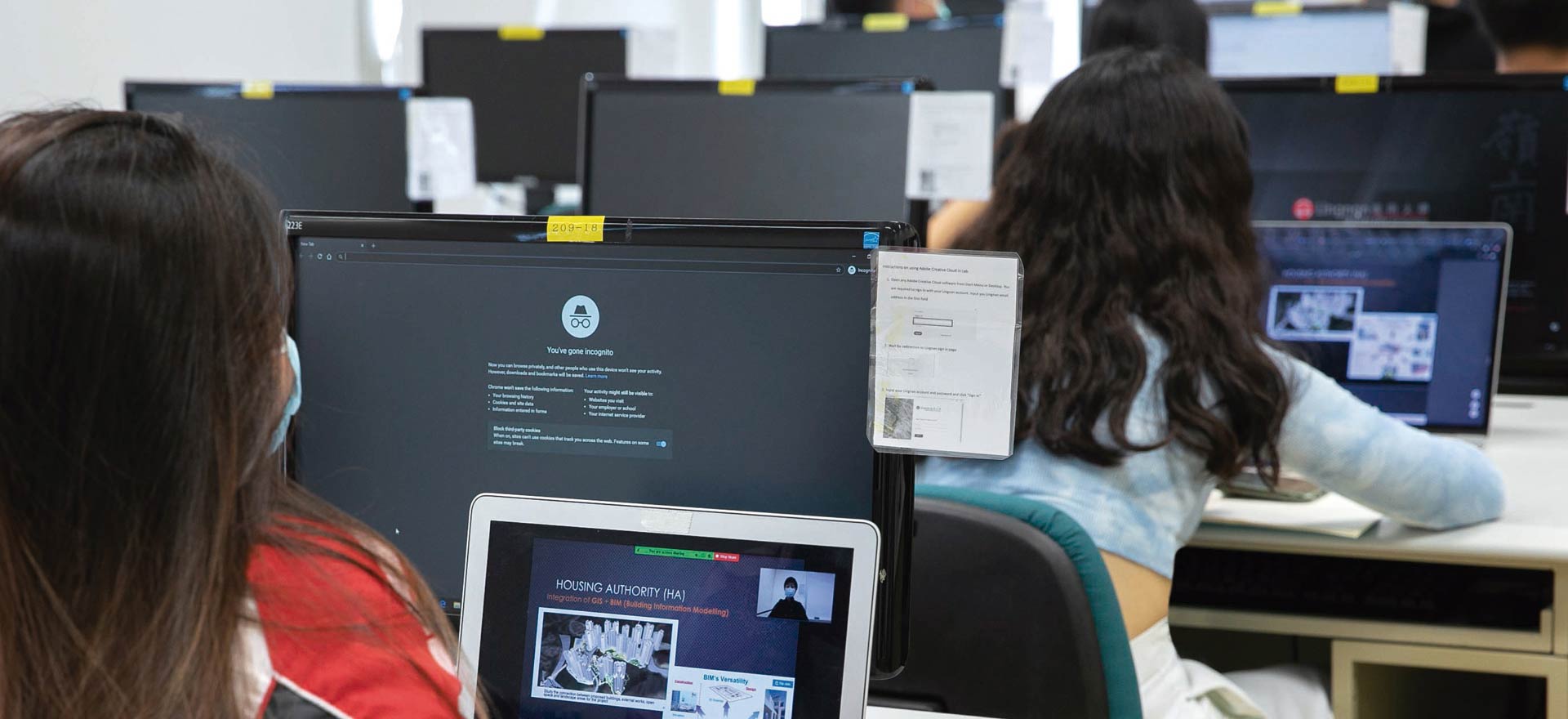
Optimising Liberal Arts Education in the Digital Era
The COVID-19 pandemic has a profound impact on education. Though the pandemic may slowly end, the University has prepared itself to adapt to the demands of the new normal and monitor the new trends for the future of learning. To develop our academic staff as leaders in the provision of innovative pedagogy under this new normal and beyond, they have received training workshops on hybrid/blended learning and teaching. Student workshops have also been provided to familiarise them with topics such as mobile app, AI, 3D modeling and video production, etc.
Under this area, we focus on optimising students’ learning and personal and intellectual growth through LU’s innovative liberal arts education. Specifically, the goal is to further enhance 21st century skills: the 4Cs, namely, Critical thinking, Creativity, Communication and Collaboration, through technology-enhanced teaching and learning, innovative pedagogy and strategic collaborations and partnerships. Particular emphasis will be placed on cultivating academic skills, information literacy, and life and career skills (leadership and social skills), including desirable behavioural traits such as self-motivation, lifelong learning, entrepreneurial spirit, integrity, and personal and social responsibility. The socio-economic and political landscapes are being reshaped continuously by unprecedented digital innovations. Our strategies aim to address both challenges and opportunities that emerge in this digital age.
Strategic Initiatives
- To further expand and develop new programmes in priority disciplines to serve specific societal needs, such as creative arts, cultural and creative industries, digital economy, big data, AI, risk management and insurance, and innovation and entrepreneurship, health and social services, gerontechnology and well-being, counselling and positive psychology and ecology and environmental protection
- To explore the feasibility of introducing double degree programmes by the University itself or in collaboration with other institutions
- To consider the possibility of introducing fully online programmes, in addition to programmes delivered through traditional face-to-face classes or a hybrid mode
- To establish the School of Interdisciplinary Studies to encourage interdisciplinary studies by building on the niche areas and interdisciplinarity across the three Faculties
- To further enrich students’ international learning experience through various forms of regional and international outreach and experiential programmes
- To enable students to become digitally literate and 21st century work ready through technology-related training embedded in curriculum and extra-curricular activities
- To recruit more and better qualified Mainland and international students with LU’s unique brand
- To enhance undergraduate teaching and learning by focusing on four areas of strategic priority: learning enhancement, learning innovation, learning analytics and learning design
- To build on, systematise and enhance the utilisation of teaching and learning data to inform teaching and learning change
- To develop Lingnan staff into leaders in the provision of innovative pedagogy
